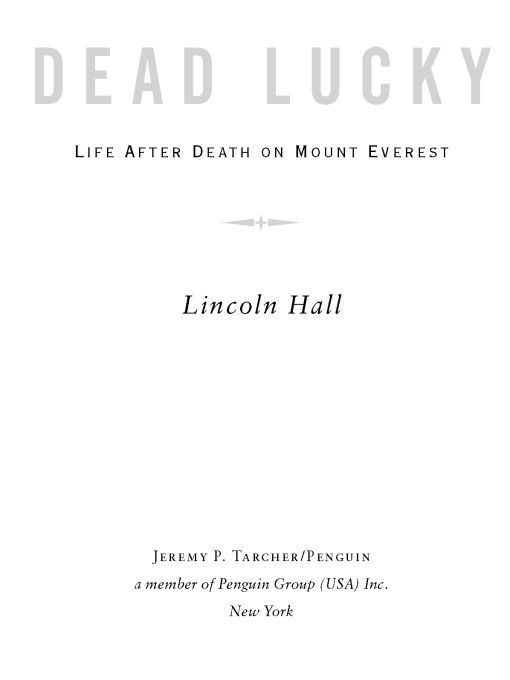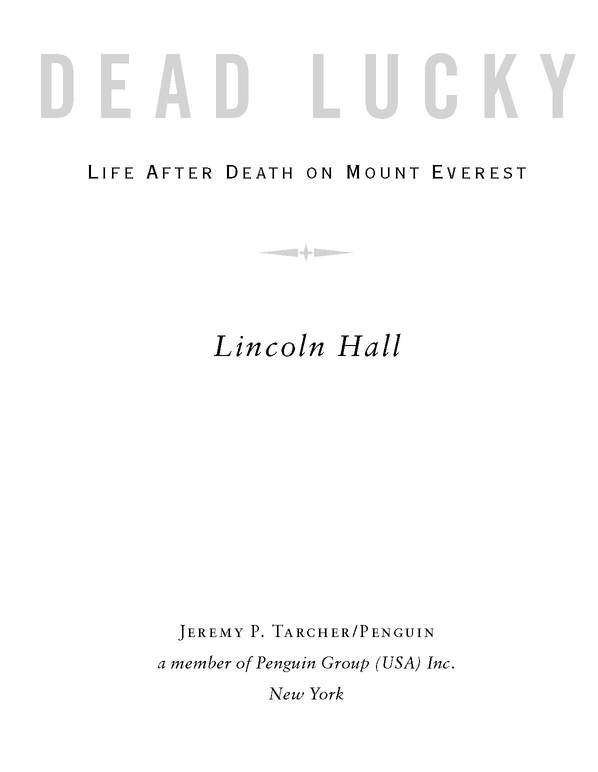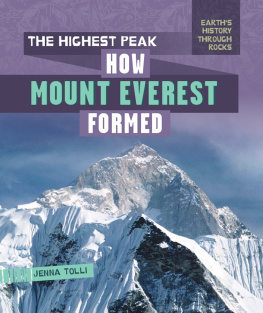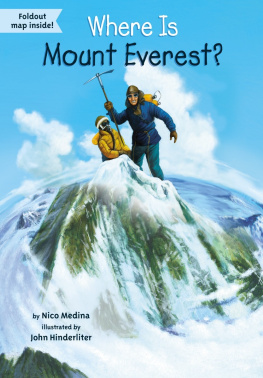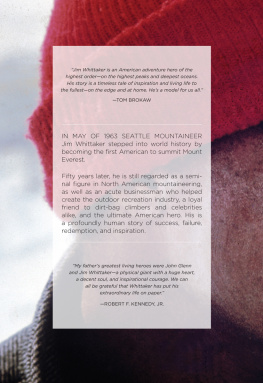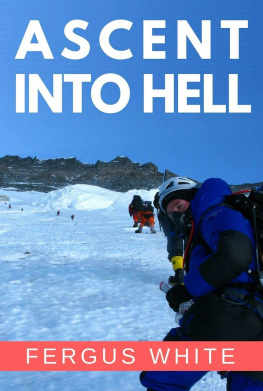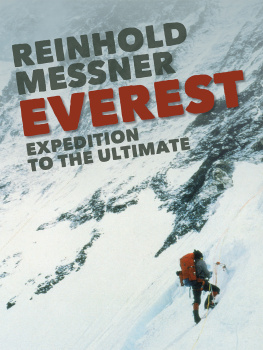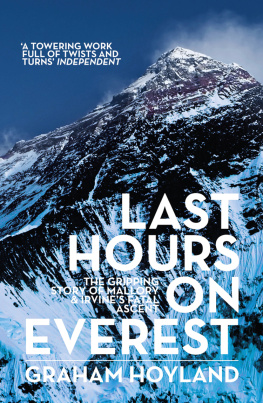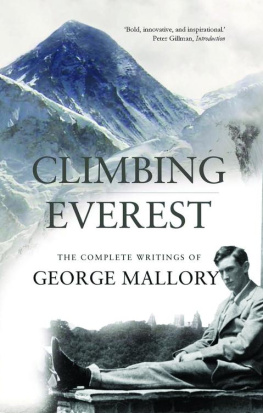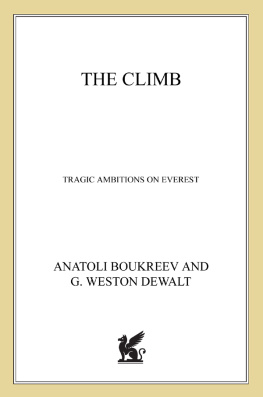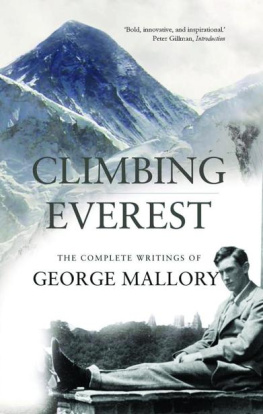Table of Contents
TO MY FAMILY,
Barbara, Dylan, Dorje,
Al, Julia, and Michele
FOREWORD
by Lachlan Murdoch
ON THE MORNING OF Saturday, May 27, 2006, the worlds newspapers had an obvious splash. Lincoln Hall, one of Australias most accomplished mountaineers, had survived a night near the summit of Mount Everest after having been declared dead by his fellow climbers. Back from the dead, Lazarus, and Miracle climber were all words employed by zealous editors as they tried to convey what none of us could really imagine: a night spent alone in the thin air of 28,000 feet, balanced precipitously between the mountain and a great void below, between hallucinatory visions and terrifying reality, between life and death.
Having met Lincoln many years ago, I would not have been shocked to hear of his death on the worlds highest mountain. I would probably have been more shocked to read that he had died in a car accident or crossing the road. Thats not because I thought he was some thrill seeker, some adrenaline junkie with a death wish. Actually, I knew Lincoln to be an excellent and very accomplished climber. The fact is, several great climbers I had either met as a youth or bumped into at climbing camp-grounds or parking lots have since prematurely met their end. The headlines that morning in May 2006 were so shocking, not because Lincoln died on Everest that night but because he did not.
An extremely experienced mountaineer, who had both the good sense and great discipline to turn back shy of Everests summit in 1984, Lincoln wrote of that decision in his book White Limbo that The summit was not everything. Survival was, and of the disappointment he would later feel for having lost what he then believed was his one chance to stand for a few moments upon the top of the world. Knowing that had he pushed on to the summit he would likely have died, he wrote: Although I will never see the summit panorama other than through the eyes of Tim and Greg [his fellow climbers], I know no view is worth that price.
Unexpectedly, twenty-two years later, Lincoln had a second chance to summit Everest. He climbed strongly to the mountains apex, where he did indeed enjoy the rarest of views. It was a perfect day. With only a few clouds in the sky and with the lightest wind, Lincoln was feeling good. He would not, it appeared, have to pay that ultimate price. Critically, he was focused on the dangers of the descent ahead.
Next time you look at a summit picture, try to look beyond the tired faces allowing quick, compulsory smiles framed by panoramic views. Often you will see something else. Sometimes, below the surface, you will see the summiteers weariness, their knowledge that the climb is only half complete. Perhaps an eye askew on the weather, or on the time, or on a struggling climbing partner, or an ear picking up the muffled sound of a distant avalanche. Adrenaline and fear are both characters in the background, along with the ever-present danger of acute altitude sickness at the most extreme heights.
Lincoln did not linger on the summit and started down the mountain after allowing himself the briefest of rests. It was then disaster struck. The day and night that followed were extraordinary by any measure and comprise a story that is certain to become a classic of mountaineering literature. The narrative tells us not only of Lincolns journey back from the dead but also of his familys and colleagues struggle to come to terms with the loss of a husband, father, and friend before learning of his miraculous survival. Why do some of us climb mountains while others are happy with a comfortable job and a decent retirement plan? Why do some need to find their limit, step right up to it, peer over the edge, and step gingerly back? The question has been asked so many times it is now a sort of clich, although at its heart it is really a riddle. Readers searching for a simple answer to such a question will not find it within Dead Lucky, as no book or essay or lecture can expose an answer to somethingthat cannot be taught or learned. It must be felt. What Lincoln Hall does so effectively in Dead Lucky is allow the reader into the most private thoughts and feelings of a man who must climb mountains; and in doing so, gives us some hints to perhaps allow us to unravel the riddle for ourselves.
A keen reader of mountaineering literature will immediately recognize Dead Lucky as among the very best of its genre. It is a top-shelf book and a great read. Those familiar with his earlier books will notice a slightly older, more mature Lincoln in these pages. He is a very human character, with strongly felt responsibilities to his family, which at times he struggles to reconcile with his climbing. He is also a character who knows his own limitations and frailties, and understands that sometimes on a mountain, as in life, events can happen that are unexpected and out of your control. In effect, he is more like the rest of us, which makes his story all the more remarkable.
AUTHORS NOTE
DEAD LUCKY HAS BEEN the most difficult of the eight books I have written, which hardly seems fair because it was an intense adventure that only needed to be written down. But the issue of writing was where my problems beganfrostbite to my hands made it hard enough for me to hold up my trousers, let alone write a book. The benefit of an adventure that kills you and then brings you back to life is that the key scenes are unforgettable. Unable to write or type, I made use of the dictaphone that I had taken on the expedition. I have found that the best way for me to add conversations to a book is to repeat them into a recording device as soon as possible after they have been spoken. Luckily, my almost-undamaged left thumb was all I needed to operate the dictaphone, and instead of just conversations, I was constantly recording thoughts, relating incidents, and describing scenes.
My efforts to gather the building blocks for my book received a giant boost when Brent Waters offered to help me recall those parts of my adventure that remained unclear to me. His method was to ask me to relate in detail the events of the expeditionwhich I willingly did, for up to five hours at a time. Brent sometimes asked for more detail and sometimes identified gaps in my story. In this way, he managed to prompt me to recall vividly much of what had happened. All of this was recorded on Brents dictaphone. As well as prompting memories to surface, the process also helped me understand my part in the broader narrative of the pre-monsoon Everest climbing season of 2006. What was omitted from this narrative were the colors and the sounds and the shapes that help paint a big picture. As soon as I was able to write, I began to build upon the framework by adding people, places, moods, emotions, and conversations.
During my twenties, mountaineering expeditions were a regular part of my life, but the past two decades have been quite different. My focus has been on my family, and major expeditions have been few and far between. More commonly, I have led simpler climbing trips as a guide, which allowed me to stay in touch with the mountains without being away for more than three or four weeks. But the true connection with a mountain can happen only during a major mountaineering expedition. From the moment I commit to an expedition, my life becomes more intense. Success can only come with proper planning from the beginning, so immediately there is attention to detail. What was different about my 2006 visit to Mount Everest was that the attention to detail continued after the expedition was over. My frostbitten extremities and my weakened body meant that every act had to be taken with great care. My book was constantly in my mind and my dictaphone was constantly nearby. The sense of commitment that began when I decided to go to Everest continued until I completed the very last page of this book.

